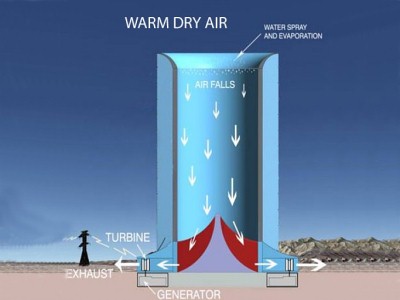
14A049 No Nukes Please, We're British by Jim Davies, 10/17/2014 
Can electricity be generated by nuclear power without aggression? - the question was raised recently by Glen Allport on Strike the Root, who noted that a new nuke is planned for England with funds provided by European taxpayers, but with a high expected price per KWh produced. My answer: it certainly can, but so far nobody has been allowed to try. In the coming zero government society, anyone will be free to generate electricity any way he wishes, and to use it and/or sell it for whatever price will attract business. It may well be that nukes can be designed to make power for a single home, or for a group of homes or a single office block; after all, the technology for a reactor to equip a single submarine has been around for decades. Or, it may also be that economies of scale will continue to furnish power at lower prices from larger plants. The market will find out. The same is true of every other method of producing power. The owner of hill country in a rainy area may have a fine chance to dam his streams and instal turbines to make hydro-power for his neighbors. Eventually solar cells may become cheap enough for the owner of a desert stretch to generate some that way, to compete with him. Perhaps the owner of a road will be able to surface it with solar cells, making it a double-purpose asset. And so on. Always, though, the market-based justice system will ensure that property rights are honored, for property rights derive directly from everyone's fundamental right to own his own life. So if the eager generator of low-cost power is to deliver the product he will need cables to pass through other owners' property, and so will need to pay them; the abomination called "eminent domain" will no longer exist to enable him to do so against their wishes. Similarly, if his chosen method of making power involves spillage of some kind (smoke, noise, radiation) or the risk of it, the associated cost will not be dumped on someone else, or "externalized" as economists phrase it. In the case of nukes, there is a very low risk of very great external damage, and that does complicate the scene. I think the market will resolve it with the use of insurance; the nuke owner will pay a premium and the insurer will pick up the tab if radiation causes harm. In the absence of government laws that limit the size of that tab, I'd expect the premiums to be rather high. If that causes the product to be priced too high to sell, so be it. The worries of another Fukushima, which was built with full government oversight on a known earthquake fault line a few meters from an ocean shore with a known history of tsunamis, will be removed by simple market operation. All this pleasant and peaceful prospect is missing from present practice, including the new nuclear power plant planned for England. It's to cost €30 billion , financed by force applied to productive people outside that country, and built by Électricité de France (EDF) which company is wholly-owned by that country's government, though it has constructed most of its nuclear plants successfully; 75% of French electricity is made that way. "Permission" was needed from "Brussels" - so the whole deal fairly stinks of a political process, in which market considerations played no sign It's important to distinguish between prejudice for or against some particular methods of generating power, as if there were something inherently evil about them technically, and the process of bringing the product for sale, which is today everywhere made sub-optimal by the force of government. Every technology comes with its own risks and dangers; the dam in a hydro plant can be destroyed by an earthquake, windmills can shed a wing, cause noise and spoil the view, coal mines can cave in, oil refineries can catch fire, and so on. Even the fascinating idea of solar wind requires towers so tall as to endanger (and be endangered by) aircraft; so far, none have been built. All life is a risk, and only the unfettered market can alleviate that risk. A few years hence, it will. |









